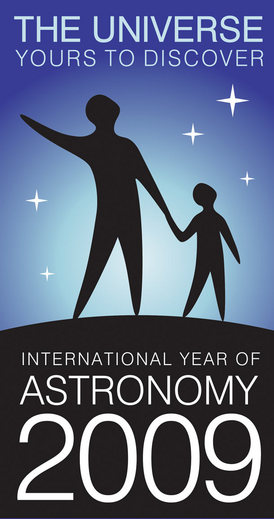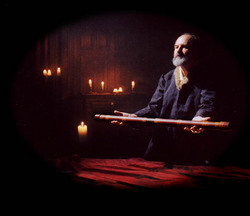 Now that we are more than half finished with the Year of Saint Paul, a year dedicated to celebrating the 2000th anniversary of the Apostle to the Gentile's birth by getting to know Saint Paul through intellectual, spiritual and cultural events, let us now turn our gaze onto a rather significant figure of our western intellectual history, Galileo. 2009 has been named the International Year of Astronomy to observe the fact that Galileo made some significant studies of our galaxy. The International Year of Astronomy (IYA) proposes to observe the 400th anniversary of Galileo's first astronomical use of the telescope.
Now that we are more than half finished with the Year of Saint Paul, a year dedicated to celebrating the 2000th anniversary of the Apostle to the Gentile's birth by getting to know Saint Paul through intellectual, spiritual and cultural events, let us now turn our gaze onto a rather significant figure of our western intellectual history, Galileo. 2009 has been named the International Year of Astronomy to observe the fact that Galileo made some significant studies of our galaxy. The International Year of Astronomy (IYA) proposes to observe the 400th anniversary of Galileo's first astronomical use of the telescope.
The goals of the IYA 2009 are to:
Increase scientific awareness;
Promote widespread access to new knowledge and observing experiences;
Support and improve formal and informal science education;
Provide a modern image of science and scientists;
Facilitate new networks and strengthen existing ones;
Facilitate the preservation and protection of the world's cultural and natural heritage of dark skies in places such as urban oases, national parks and astronomical sites.
Galileo 2009 sponsored by Euresis, an Association for the Promotion of Scientific Endeavor
100 Hours of Astonomy 2-5 April 2009
The January 6th, 2009 homily of Pope Benedict mentioning the IYA 2009
Reflections by Brother Guy Consolmagno, S.J., on the Pope's salute to those participating in the IYA 2009
A. C. Crombie, Augustine to Galileo: The History of Science A.D. 400-1650 (an online book)



400 years ago the church and its followers were mean and hence people like
Galileo had a tough time. The church has no doublt reformed itself but will the church allow its members to live really a free life? Will religions step aside to see a genuinely free mankind on earth?!
Thanks for writing. I am happy to hear from readers. Let me say from the start, it was never the point of the Church to be mean. If that is how you perceive the Church then there is an error somewhere in knowing the nature of the Church and looking at the facts, especially 400 years later. The Church is the sacrament of mercy, love, freedom, given by Jesus Christ for our salvation. Galileo was not a man without sin and he knew the limits of his humanity. Will the Church allow her members to be free, you ask. Yes, indeed. The Church does not impose the the faith on anyone. She makes a proposal that corresponds to the desires of the human heart that necessarily entails freedom. You may know that freedom is not the ability to do whatever you want as though the person is the measure of all things. Freedom as it is known and lived in the Catholic Church is best understood as a window widely opened\ toward a reality that one never completely discovers, a reality that one penetrates each and every day with curiosity and awe.
What you are suggesting is that the Church abdicate her role in teaching, sanctifying and leading people to Christ. AND this is not freedom.